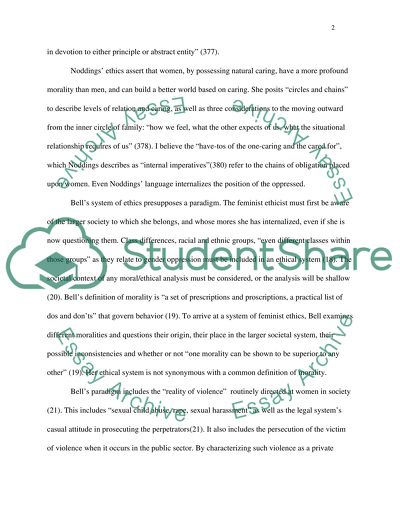Cite this document
(“The Ethical Systems of Noddings and Bell Term Paper”, n.d.)
Retrieved from https://studentshare.org/social-science/1419957-philosophy-feminist-ethics-see-below-attached-for
Retrieved from https://studentshare.org/social-science/1419957-philosophy-feminist-ethics-see-below-attached-for
(The Ethical Systems of Noddings and Bell Term Paper)
https://studentshare.org/social-science/1419957-philosophy-feminist-ethics-see-below-attached-for.
https://studentshare.org/social-science/1419957-philosophy-feminist-ethics-see-below-attached-for.
“The Ethical Systems of Noddings and Bell Term Paper”, n.d. https://studentshare.org/social-science/1419957-philosophy-feminist-ethics-see-below-attached-for.


